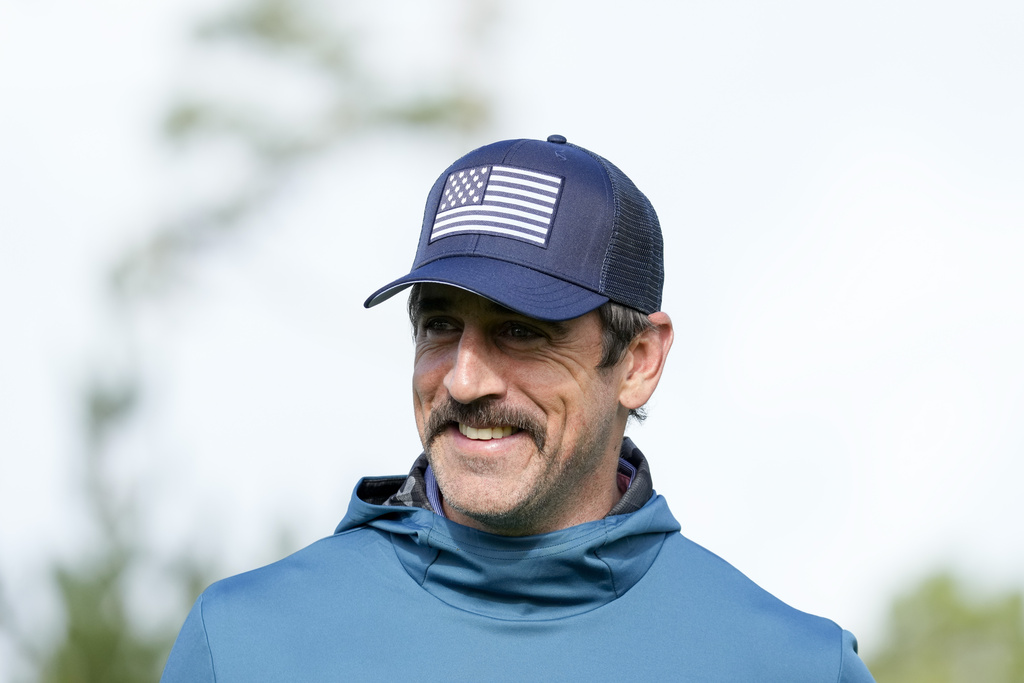Aaron Rodgers ‘Denial’ Over Despicable Sandy Hook Conspiracy Reads More Like a Confession

(AP Photo/Eric Risberg, File)
Aaron Rodgers’s response to a CNN report alleging he pushed Sandy Hook conspiracy theories raises far more doubt about his judgment than one imagines he had hoped.
The outspoken quarterback for the New York Jets had just been floated as the frontrunner for Robert Kennedy Jr.’s running mate when the report dropped.
On Wednesday, CNN’s Jake Tapper and Pamela Brown reported that Rodgers “shared deranged conspiracy theories about the 2012 Sandy Hook school shooting not being real.” This conspiracy has long been proven false and was promoted mainly by conspiracy theorist Alex Jones, who was ordered to pay settlements adding up to some $1 billion to Sandy Hook families for promoting these lies.
According to the initial report, Rodgers learned that Brown worked for CNN, then proceeded to criticize the news media and brought up the Sandy Hook shooting:
Hearing that she was a journalist with CNN, Rodgers immediately began attacking the news media for covering up important stories. Rodgers brought up the tragic killing of 20 children and 6 adults by a gunman at Sandy Hook Elementary School, claiming it was actually a government inside job and the media was intentionally ignoring it.
Brown and Tapper reported that in a separate encounter involving another, unidentified person, Rodgers espoused similar views and said the victims “never existed” and “were all actors.”
Rodgers’s experience in public discourse is limited mainly to post-game interviews, team press conferences, and podcasts. He has no political or public service experience and his best-known political views are his skepticism of Covid vaccines. The fact that he is being considered as a running mate for a presidential candidate is, on its face, laughable.
Rodgers put out a statement on social media to stem the derision over the report:
For the layperson, that might seem to be enough. However, a close examination shows no denial of the CNN report, only an insistence that he has “never been of the opinion that the events did not take place.” He does not specifically deny the key charge of the report, which is that he claimed the shooting was orchestrated by the government. Most notably, his statement is entirely void of any denial of having promoted these loathsome Sandy Hook conspiracy theories.
The Rodgers statement is the very definition of a lawyered-up response, designed more to avoid further problems than to douse any flames. And why is that?
Because if Rodgers were to come out and say that he never promoted the conspiracy theory that the Sandy Hook shooting was a staged event, he might have to then say the reporters of the piece are lying. If the piece were true, that would be defamatory. CNN could sue him, there would be discovery, and he would lose, presuming, of course, that the report is accurate. Given Rodgers’s response — Why would we now think anything else?
If someone accused me of spreading Sandy Hook conspiracy theories, what would I say? My response would be quick and precise, something like, “I have never spread Sandy Hook conspiracy theories in my life. I find them disgusting. Anyone saying I have is a liar.”
Why didn’t Aaron Rodgers say that? It’s almost certainly because he can’t.
This is why his limp response—which many outlets generously and inaccurately called a denial—reads like far more of a confession that he’s promoted this idea in the past, further evidence he’s totally unfit for any office or serious place in public discourse.
This is an opinion piece. The views expressed in this article are those of just the author.






